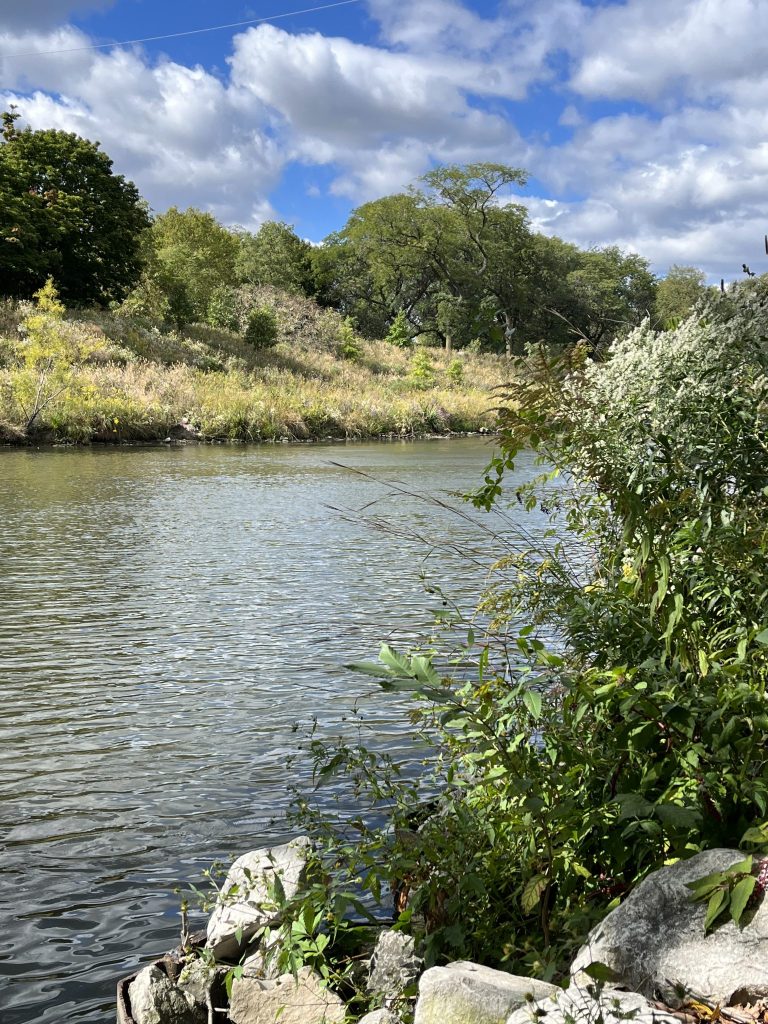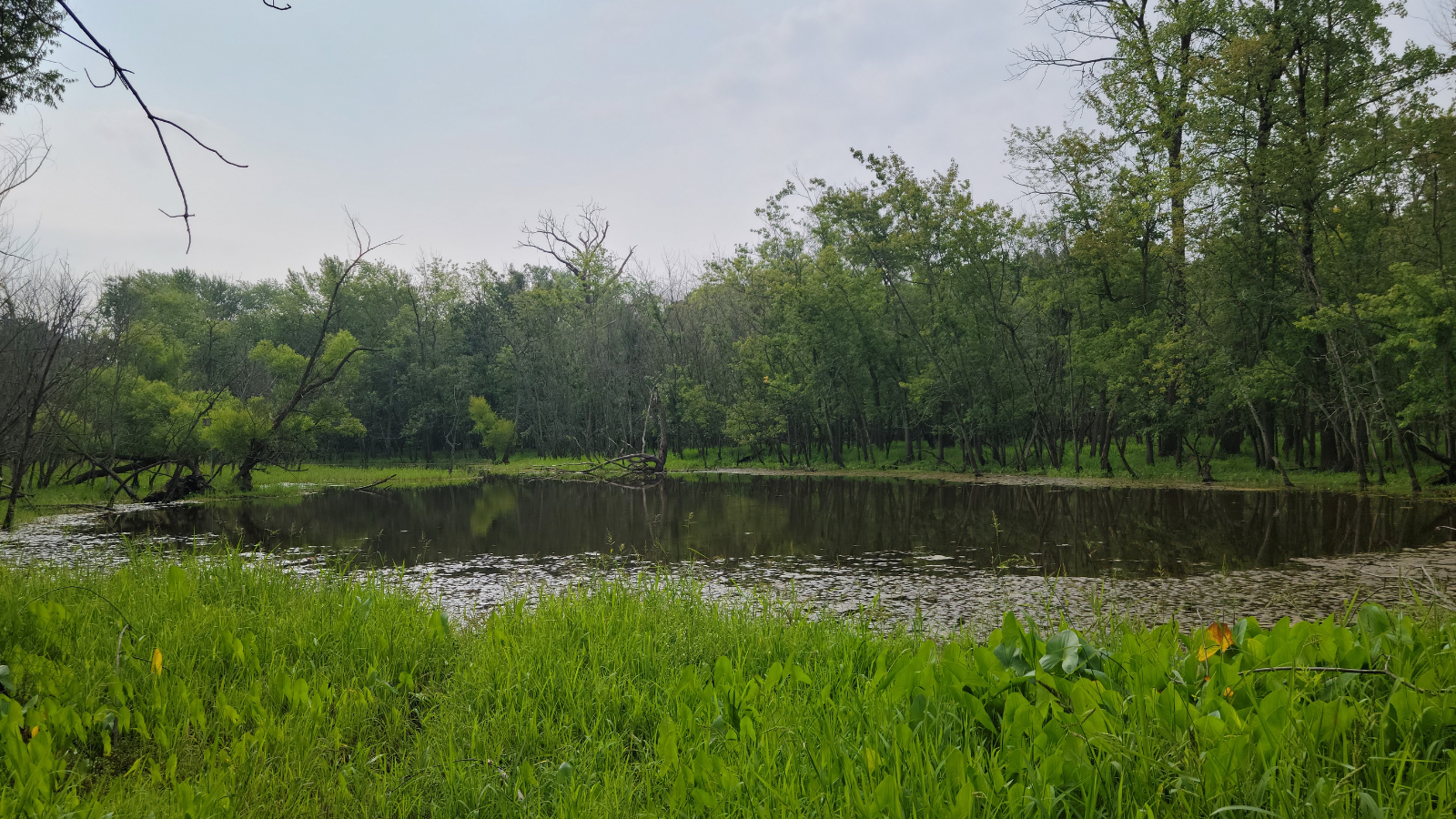by: Sam Bower
As lead pipes continue to pollute our drinking water and threaten Chicagoans’ health, there are natural features that actively remove toxins and other pollutants from our water. These features are known as wetlands! While they cannot remove lead (and therefore can’t counteract lead service line pollution), they do contribute enormously to mitigating other water-based health issues and are incredible nature-based solutions to help fight climate change (they’re great carbon sinks!) and its effects, such as flooding.
Currently, IEC is at the center of efforts to pass legislation at the state level that would protect wetlands against developer bulldozers, especially in light of the Supreme Court’s 2023 decision that gutted the Clean Water Act and threw wetlands into turmoil nationally. In March, we joined with our Protect Illinois Wetlands coalition partners and sponsors Sen. Laura Elman and Rep. Anna Moeller to introduce the legislation.
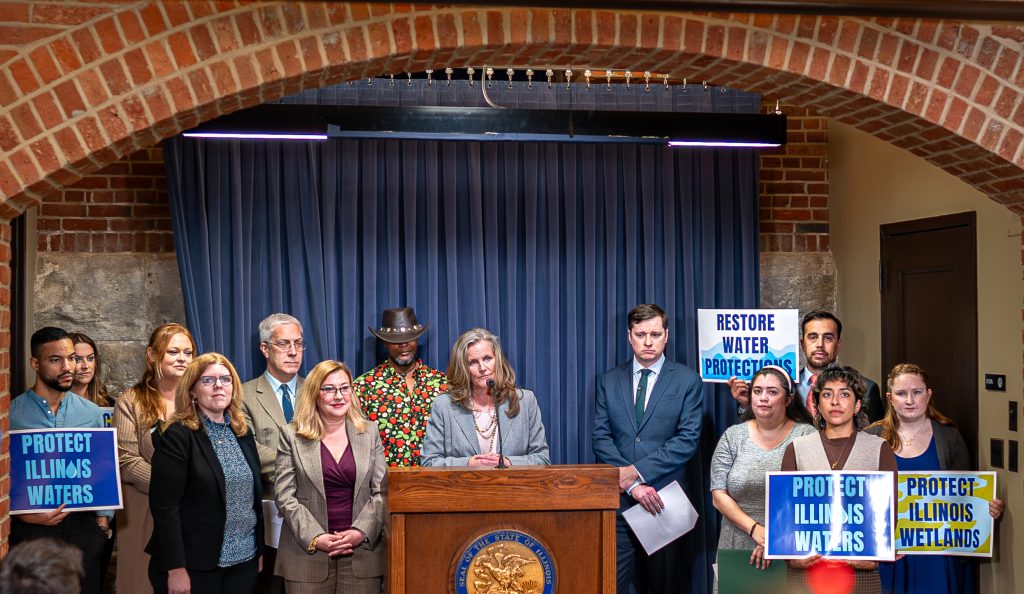
“Our Illinois waterways and wetlands are left more threatened than ever and need protection to ensure safe drinking water, flooding mitigation, and healthy communities,” said Senator Ellman, speaking to the importance of the Illinois Wetlands Protections Act for the state’s 10% remaining wetlands.
Wetlands in Chicago stand to benefit from the passing of this policy, including wetlands located in North Park Village Nature Center and Indian Ridge Marsh, for example. This legislation “reinforces local efforts by Chicago related to stormwater management or wetland conservation strategies,” says IEC Chicagoland conservation manager Sergio Vargas.
In 2023, WTTW reported on a $1.2 million project described as “A major effort to restore nearly 200 acres of wetland habitat at Powderhorn Prairie and Marsh Nature Preserve on Chicago’s Southeast Side.” Faced with damaging flooding in the area and increasingly difficult conditions for wildlife to thrive, this project aimed to restore the wetlands in a way that would enable them to naturally mitigate floods and support a resurgence of turtle, fish, and bird populations. Projects like this underscore the need to proactively fight for strong wetland protections that recognize their value as key tools to fight back against climate change.
But just how critical are wetlands to wildlife? The Wetlands Initiative, a Chicago-based non-profit organization committed to designing, restoring, and creating wetlands, says that wetlands are “biological super systems” with biodiversity levels on par with coral reefs and rainforests. And, if that wasn’t awe-inspiring enough, a Cornell report from 2022 said that “Birds are declining overall in every habitat, except wetlands.”
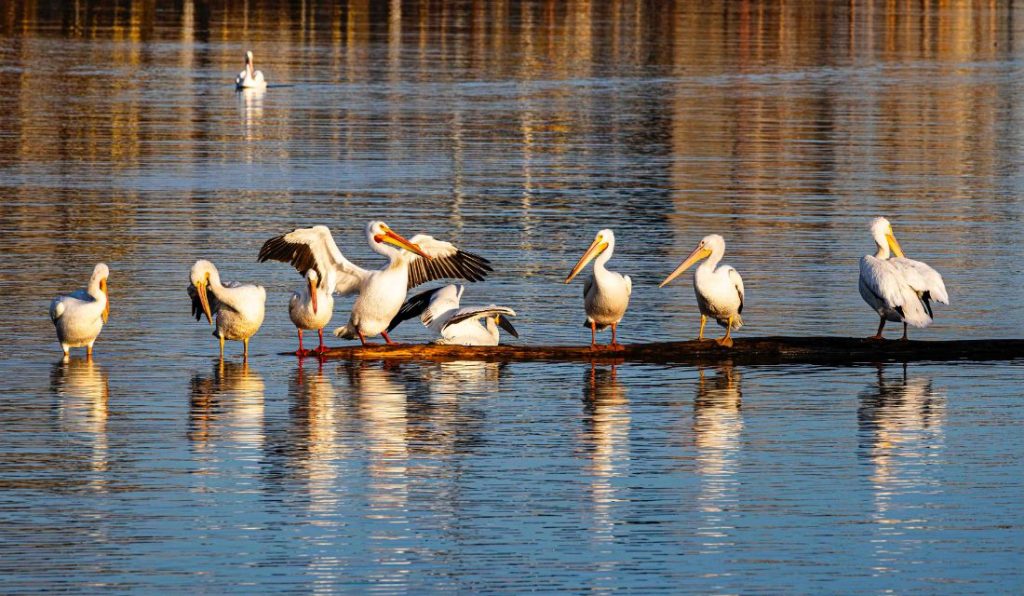
Not only do wetlands help to make our natural areas healthier, but they also ensure public health. At the Illinois Wetlands Protections Act introduction back in March, Dr. Rebecca Vortman, Perioperative registered nurse and clinical assistant professor at the University of Illinois Chicago College of Nursing, spoke about the power of wetlands to contribute to a healthier water supply.
“In reality, all of our water comes downstream from somewhere. It is a great example of our reciprocal relationship with nature. We must protect our wetlands, which filter, maintain, and purify our water. In turn, protecting us from pollutants and contaminants making their way into our water supply and helping to ensure we have adequate supplies of drinking water for our homes, businesses, and crucially our hospitals and medical facilities,” she said.
On April 30, IEC staff, including Sergio and Conservation Director Lindsay Keeney, and our conservation partners traveled to Springfield to meet with state decision-makers and urge them to support policy that protects Illinois’ nature, including wetlands.
Staff from IEC, Openlands, the Prairie State Conservation Coalition, and The Nature Conservancy were in attendance to advocate for wetland protections. In the morning, several organizations and state agencies lined the halls of the Capitol with tables with information and resources readily available.
“Over the next few days, we’ll work to log all the legislators that our team spoke to and notes from those conversations. We aim to continue refining how we can connect the importance of these critical protections to legislators’ districts. Wetland protections are a matter of clean air, clean water, habitat protection, flood mitigation, and more,” Sergio said.
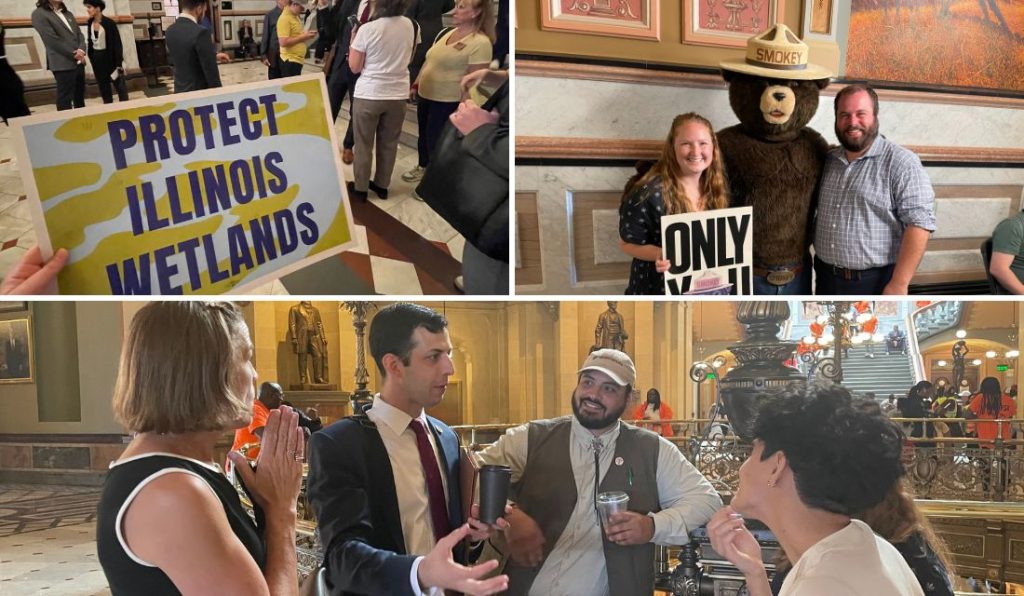
It’s so clear that wetlands are so important to the Chicago region, to Illinois, and to the world that institutions like the Shedd Aquarium are also involved in conservation and education efforts. The Shedd partnered with the non-profit Urban Rivers to build the Wild Mile in the Chicago River, a series of floating wetlands designed to “improve water quality” and create an “oasis for wildlife.” And that’s just one example of the many conservation efforts it’s working on.
“…Investing in freshwater is also a commitment to human health and that of the next generation. Our Chicagoland waterways are all connected, running through the suburbs and city alike. Healthy, resilient natural areas are critical to the Chicago region’s climate resiliency and equitable access to clean and healthy water,” wrote Shedd CEO Bridget Coughlin in an April Op-Ed in the Chicago Tribune supporting wetlands protections.
Her words are a powerful reminder that our water is a shared resource. We depend on clean water to survive. We find joy in recreational activities like swimming, canoeing, and kayaking. We wonder at the incredible diversity of plants and animals that coexist in and around water with us.
When we poison our water with lead and microplastics, we burden natural habitats and human communities alike. Most importantly, it is crucial to remember that communities such as environmental justice communities lack equitable access to clean water, recreation opportunities, and healthy natural areas. It’s more imperative than ever that Illinois adopt strong policy solutions that protect wetlands, expand access to open space, and find creative solutions–like nature-based solutions–to fight climate change.
